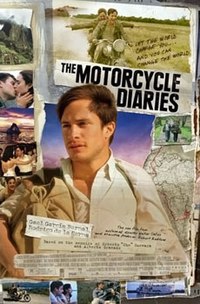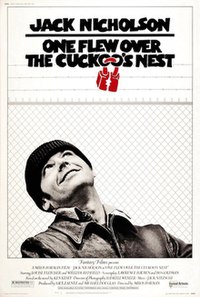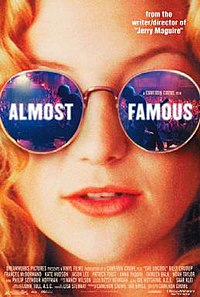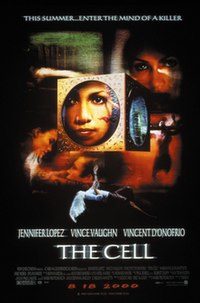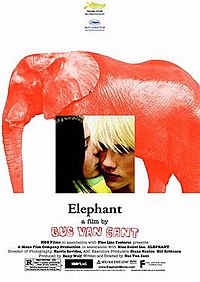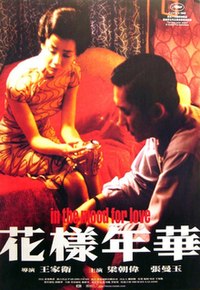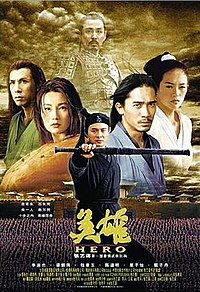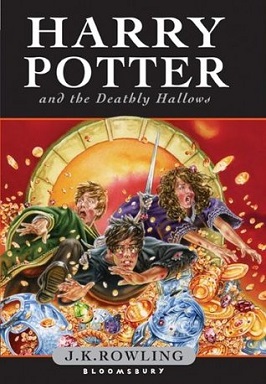It is oft repeated but really rock music is well and truly dead these days. It can be argued that most of the truly great rock music was made between the 1950s and 70s. I’ve always wondered how it would have been to have lived through the 60s when there was a palpable excitement in the music that was being made. It was perhaps the feeling of hope. Perhaps it was the knowledge that this was something new and great. Or perhaps it was the feeling of living in a time where you felt you could truly change the world with a guitar slung over your shoulder. It was all of that and more but what is indubitable is that it was the golden age of rock music with so many bands making such glorious music. I doubt if I’ll ever get to see such a thing happen in my lifetime.
The other day I was wondering about how indifferent I had become about contemporary music. Mainstream hip hop with its talk of money, bling and women makes me want to rip out someone’s heart while the mindless pap that is churned out in the name of pop bores me to tears. Alternative rock has mostly lost its soul while indie rock spends too much time navel gazing. Of course, I’m not a loyal follower of the current music scene. In fact, I’m usually at least five years behind the current music scene so I might be missing a lot of great music. But the few times I’ve listened to music on the radio or on the net has only reinforced my opinion.
That is not to say that great music isn’t being made anymore. There are still artists/bands out there that are still carrying on often against the odds to make the music they believe in. But somehow that fire and excitement is not there in my opinion that was there in rock music’s heyday. Now it is all about sleek studio over-production and marketing to the right demographic.
Maybe I’ve become too old and cranky but there was a time during my undergraduate years when music meant so much. It was part of your soul and the songs literally formed the soundtrack of your life. There was a thrill, a thrill which was equal parts envy and enthusiasm, in watching someone play the song you would give your left hand to play but would never be able to even if you could do that. And every time you attended a rock concert, even with a bad band playing, you earned to be on stage singing those lines and playing those searing solos. Not because you could look cool and attract women (well maybe for that too) but because there was something cathartic about singing your heart out in front of thousands of strangers. It was a perfect medium to let out all that you were feeling into the open through song. It is a pity that that unique pleasure of discovering great music and sharing it with your friends seems to have been lost, perhaps forever.
During that time (and later) I discovered some truly great rock music. Music that has stood the test of time and manages to speak to you with clarity and passion even after so many years. And so even if I have never lived during the golden age of rock here is a list of rock albums that have had a palpable influence and at one point or the other transformed themselves into religious texts for me. Not all of these albums are from the 60s or 70s, there are some from recent times too, but all of them have a touch of greatness in them. These are albums that you should listen to at least once in your lifetime.

[audio:PF_Eclipse.mp3]
Pink Floyd – Eclipse
Pink Floyd-The Dark Side of the Moon: I’ve this inexplicable, almost mystical connection with the music and songs of Pink Floyd. I actually did not like them when I first heard them. I still remember vividly when I first ‘got’ their music. I was sitting under the shed in Nizam’s one afternoon alone and listening to the live version of ‘Wish You Were Here’ from their otherwise bland ‘Delicate Sound of Thunder’ album on a walkman. And there was this moment which I’ll never forget when something clicked and a whole new world opened in front of me. It was magical. After that there was no turning back.
They have made such great music backed by some of the greatest lyrics ever written that it is hard to select the best. In fact, I’m tempted to include at least half their discography in this list!
It took me an insanely long time to really like Dark Side. Even now I don’t think it is my favorite Floyd album but this is the record where everything came together in the correct amount for the band. Water’s profound lyrics, Gilmour’s beautiful guitar playing, Wright’s melodic keyboards and Mason’s tight drumming. Add to this an almost flawless and intricate production and you have one of the greatest rock albums ever made. With its themes of madness, depression, loneliness and greed it is definitely not an easy album to listen to. In fact, it is rather depressing when you really listen to the songs. But that still should not deter you from enjoying ‘The Great Gig In The Sky’s yearning melody or ‘Us and Them’s soulful theme of separation or the epic finality of ‘Eclipse’. However, for me the greatest thing about the album (apart from the iconic cover art) is the lyrics of ‘Time’. Here are the lyrics from the last half of the song:
So you run and you run to catch up with the sun but it’s sinking
Racing around to come up behind you again.
The sun is the same in a relative way but you’re older,
Shorter of breath and one day closer to death.
Every year is getting shorter never seem to find the time.
Plans that either come to naught or half a page of scribbled lines
Hanging on in quiet desperation is the English way
The time is gone, the song is over,
Thought I’d something more to say.
It is breathtakingly sad but beautiful poetry. Please, go get the album.

[audio:VM_Astral.mp3]
Van Morrison – Astral Weeks
Van Morrison-Astral Weeks: Someone once said that Van Morrison could sing the phone book and make it sound good. And that is quite true. This album is a testament to that. It is hard to explain the almost mystical quality this album has. Perhaps it comes from Morrison’s Irish Catholic background and Celtic influence. Whatever the reasons it is one of the strangest rock albums. The jazz inflected music perfectly complements the often incomprehensible lyrics.
If I ventured in the slipstream
Between the viaducts of your dream
Where immobile steel rims crack
And the ditch in the back roads stop
Could you find me?
Would you kiss-a my eyes?
To lay me down
In silence easy
To be born again
To be born again
But it is all brought to life by Morrison’s singing. There is a certain pain and yearning in his voice. It is not the pain of anger; it is the pain of loss. You cannot help but get affected by his singing; by the way he brings the dense lyrics to life. It is a 47 minute trip into a different land. A journey you will want to repeat every time the smile around your lips begins to fade under the weight of circumstances.

[audio:Radio_Climbing.mp3]
Radiohead – Climbing Up The Walls
Radiohead-Ok Computer: In many ways I prefer their earlier The Bends album for its simple, more mainstream melodic music that is instantly accessible. But the sheer scope and depth of this album has to be appreciated. It is perhaps the best rock album out of the 90s, Nirvana, Pearl Jam and R.E.M. notwithstanding. Dense production and the droning drawl of Thom Yorke are the signature elements of this record. The guitars swirl in layers, the electronic drums are sonorous, the bass throbs with a certain quiet intensity and all of this is tied together by the almost incomprehensible singing of Yorke. The album is quintessentially post-modern in feel with its vague but cool art work and themes of pre-millennial alienation and the coldness caused by technology. There are no instantly hummable tunes here or catchy choruses. The songs have a certain moodiness to them. The moodiness of modern melancholia. But there is melody beneath all that fuzzy distortion and the album grows on you. It is truly an album in which you will discover something new every time you listen to it.

[audio:Beatles_Guitar.mp3]
The Beatles – While My Guitar Gently Weeps
The Beatles a.k.a The White Album: The Beatles made many great albums with their Sgt. Peppers album often touted to be the best rock album ever made. But I like this sprawling and uneven masterpiece the most. This is also the album where the cracks first began to show between the band members with most recording sessions often done individually in separate recording studios. And in that regard this is not the work of a band but more the work of the individuals. It was the beginning of the end for the band. But even with all the friction between them what glorious music they made. Abbey Road might be their swan song but this is the album which truly gave them time and space to experiment individually and also move towards a new clean sound. Most of this album was actually written in India where The Beatles had gone to study transcendental meditation under Maharishi Mahesh Yogi at Rishikesh. That influence clearly shows in the simple but strong song writing even if the band were ultimately disillusioned by their experience at the ashram.
I remember how much I liked this album the first time I heard it, from the clean minimalist cover to the avant garde beauty of Revolution 9. And that song more than anything else on the album made me stand up and take notice. It is a dense song filled to the brim with all kinds of loops, vocal snippets and swirling layers of music. It is unlike anything The Beatles had done before (with a couple of exceptions). There are other great songs too, like Harrison’s masterful ‘While My Guitar Weeps’ that is beautifully fleshed out with a great guitar solo by Eric Clapton. And there is that quietly melodic beauty ‘Blackbird’. Since it is a double album there is some filler that pulls down the album a bit. But overall, this is an extremely rewarding album that is also quite accessible.

[audio:BOC_DFR.mp3]
Blue Öyster Cult – (Don’t Fear) The Reaper
Blue Öyster Cult-Best Of: Ok, I’ve never gone beyond their best of collection but what a glorious collection it is. Except for a couple of songs that act as filler the collection is a tour de force of hard rock, proto-metal and even soft rock. The band never grew beyond their cult status but they have been highly influential. Metallica covered one of the songs featured on this collection, ‘Astronomy’ on their Garage Inc album. Standout songs include the band’s biggest hit, the lushly melodic ‘(Don’t Fear ) The Reaper’, the darkly seductive ‘I Love The Night’ as well as the above mentioned rocker, ‘Astronomy’. Like most best of collections the record does not have a consistent flow but at least in the first half of the album there is a palpable undercurrent of yearning that runs through the softer songs which is addictive.
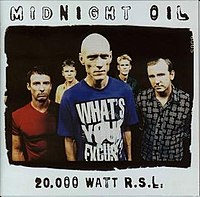
[audio:Midnight_Oil_Dead_Heart.mp3]
Midnight Oil – Dead Heart
Midnight Oil-20,000 Watt R.S.L.: Another best of collection about which I’ve written here.

[audio:IO_Kandisa.mp3]
Indian Ocean – Kandisa
Indian Ocean-Kandisa: One of the very few albums made by an Indian rock group that I can stand and listen to over and over again. Most Indian rock bands I’ve heard suffer from a dearth of originality and what seems like an inability to move away from imitating their Western counterparts in their playing and singing. But Indian Ocean is different. For one they do not sing in English. Second they take the instruments at the heart of the Western rock band and Indianize them while also adding many Indian musical instruments to their sonic repertoire. Listening to them you would be forgiven if you think they are not a rock band but a local folk band. In some ways that is quite true. Most of their songs are from the Hindi heartland. But they have reworked them, often in brilliant new ways. While their earlier albums suffered from a lack of focus and sometimes direction the band tightened their act and came out with an instant classic in the form of Kandisa. To be frank, I do not understand half the album as the Hindi is often beyond my limited knowledge of the language but what does that matter when the music is so down to earth and accessible. Lilting folk tunes and raunchy folk rockers segue into the show stopping sublime beauty of the title song at the end. Even if you do not understand Hindi give this album a listen. If you like music you will like this.

[audio:Love_And.mp3]
Love – Andmoreagain
Love-Forever Changes: While Jim Morrisson and The Doors were hogging most of the limelight in the late sixties their record label mates quietly came out with this masterpiece that was all but ignored on initial release. It is now a seminal rock record that deservedly finds a place on many best rock albums of all time lists. The album is strangely accessible. Behind the seductive veneer of the songs is the darkness of death and melancholy. Arthur Lee, the front man of the band, actually thought that this album would be his last testament as he thought he would die soon. So the songs have this contemplative quality to them:
“Sitting on a hillside
Watching all the people die
I’ll feel much better on the other side.”
If you like 60s psychedelic music then you should definitely listen to this album. While it does not have the ‘in your face’ attitude of say Jefferson Airplane or The Doors this album has a definite depth. There are no stand out guitar solos or instantly hummable tunes. The band just comes together and gels into one unit to produce an album of simple and subtle beauty. And that is a supreme achievement.
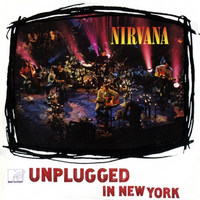
[audio:Nir_Something.mp3]
Nirvana – Something In The Way
Nirvana-MTV Unplugged in New York: I’ve already written about this before here.

[audio:PF_Mother.mp3]
Pink Floyd – Mother
Pink Floyd-The Wall: As a die hard Floyd fan I had to sneak in another Floyd album into this list 🙂 This record is one of the most ambitious concept albums in the history of rock music (there is even a film of the same name by Alan Parker based on this album). And it almost keels under the weight of its own ambition. In the hands of a lesser band that would definitely have transpired but this is Floyd we are talking about. They often dealt with grandiose themes so they got away with it and in the process produced an amazing album. A brain child of Roger Waters, this is mostly his album, at least lyrically. But without the beautiful guitar playing of Gilmour the album would have fallen apart at its seams and neither would it have been so accessible.
Dealing with themes like breakdown of communication between human beings and the walls we build around each other the album also mirrored the troubles between the band members and marked the beginning of the end for the band. Wright was fired soon after the album came out. Waters and Gilmour started feuding which finally culminated in the departure of Waters after another album and a protracted legal battle over control of the band’s name. While Gilmour would reunite with the remaining three members in the late eighties they would never attain the creative heights again as they did together with Waters on this album.
From the wildly popular and anthemic ‘Another Brick in the Wall’ to the guitar pyrotechnics on ‘Comfortably Numb’, from the questioning ‘Mother’ to the throbbing ‘Run Like Hell’, from the sweet lullaby like ‘Goodbye Blue Sky’ to the accusatory ‘Hey You’ the album is filled to the brim with astonishingly good songs. Even the descent of the last quarter of the record to rock opera excesses does not detract from the quality and depth of the rest of the album.
The following are not rock records in the strictest sense but each one has had its own effect on me so I include them here.

[audio:Tori_Me.mp3]
Tori Amos – Me and a Gun
Tori Amos-Little Earthquakes: It has been a long long time since I’ve heard this album completely but I still remember how I was hit in the gut by the force of Tori Amos’s confessional songwriting and powerful singing when I first heard it. She was the pioneer. Without her there would have been no Alanis. There is a gut wrenching honesty to this record. There is also anger. You will cringe as Amos sings of her rape but you will also rejoice later as she tries to make peace. A powerful debut record that is also the most accessible in her catalog.

[audio:Tracy_Baby.mp3]
Tracy Chapman – Baby Can I Hold You
Tracy Chapman-Tracy Chapman: It is interesting how I got around to listening to this album. Not knowing what to give my then girlfriend on her birthday (yes I suck at giving gifts) I randomly settled on this. I came back home and out of curiosity decided to pop it into the audio player. I was instantly blown away. So much so that I bought myself another copy. One of the best debut albums of all time. Tracy Chapman’s unaffected singing style lends an authenticity to her elegant but simple lyrics. The simplicity of the album instantly reels you in. There is no flash. Just plain old honesty that is so hard to come by.

[audio:Emi_Stan.mp3]
Eminem – Stan (Feat. Dido)
Eminem-Curtain Call: This is not a rock record per se but boy does this guy pack a punch! Endlessly dissected in the media, he is equally vilified and worshiped. But all that controversy should not detract from the sheer talent behind his writing and singing. The way he rhymes is phenomenal. This is poetry of the most personal kind. While he does descend into polemics and vulgarity in some songs, at his best his songs carry an emotional wallop that hits you between your eyes. There is a sensitive side to him too as shown in the devastating ‘Stan’. This collection, in spite of a few excesses and unnecessary filler, is a roller coaster ride through his best and most popular work. Essential listening.
[-] Show Less















